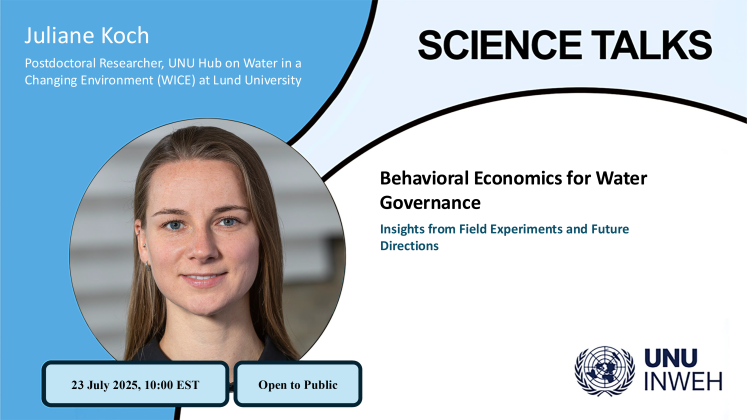Effective water governance requires a deep understanding of what drives people’s decisions — how they cooperate, respond to incentives, and interpret fairness. In this Science Talk, Dr. Juliane Koch will explore how behavioral economics can inform water policy by integrating insights on social norms, preferences, and decision-making under uncertainty. The talk will present findings from a lab-in-the-field experiment in Papua New Guinea, where in-group observation significantly increased cooperation in protecting mangrove forests — critical for water ecosystems and coastal resilience. Dr. Koch will then introduce an experimental design testing policy tools to reduce farmers’ fertilizer overuse, which contributes to groundwater pollution. Finally, the talk will open the discussion by hinting to a future research agenda on public perceptions of water markets, and research possibilities when combining survey experiments with registry data. These studies highlight how behavioral economics can inform policymakers who aim to reach more effective and equitable water governance.
Speaker

Postdoctoral Researcher, UNU Hub on Water in a Changing Environment (WICE) at Lund University






